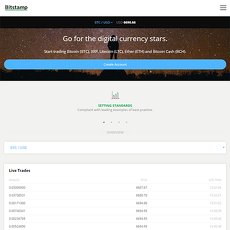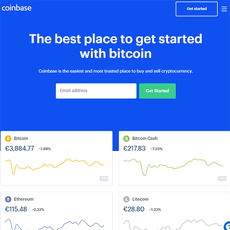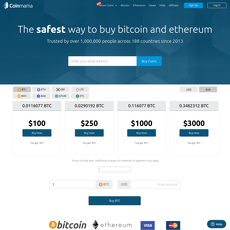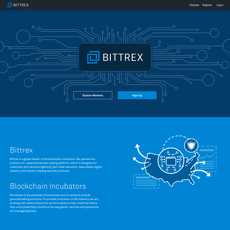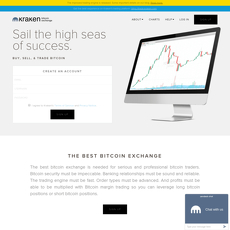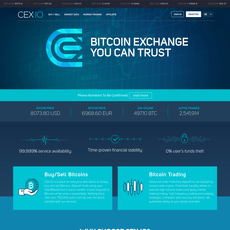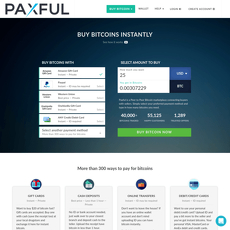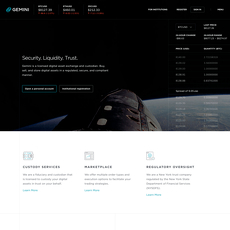Dether Review
Dether
dether.io
Dether Review Guide: How Safe Is Peer-to-Peer Crypto Cash Exchange in 2025?
Ever felt like turning your crypto into actual cash was way trickier than it should be? Or had that moment where you wished you could just buy Bitcoin, Ethereum, or a favorite stablecoin with cash, face-to-face, instead of jumping through hoops with online exchanges?
This is the heart of what Dether wants to solve—and honestly, it’s catching a lot of curiosity in the crypto world. Imagine if getting crypto was as simple as grabbing a coffee, or turning what's in your digital wallet into cash didn’t feel like you were risking a week of stress and high fees.
Why Exchanging Crypto for Cash Is Still a Headache
Let’s face it—while the world has become obsessed with digital currencies, swapping them for real money, or the other way around, is still an uphill battle. Here’s what most people run into:
- High fees: Online exchanges and ATMs can take a big bite out of your funds.
- Privacy worries: Most trading platforms want all your details, sometimes just for a tiny transaction.
- Waiting games: Some exchanges make you wait days for a withdrawal or deposit to clear, and that’s if you’re lucky!
- Legal headaches: Not every platform works in every country, thanks to tricky regulations—and nobody wants their crypto frozen.
- Getting started fear: Newcomers aren’t thrilled to trust random buyers or sellers online, never mind handing over cash to a stranger.
It’s not just us traders who feel it—even recent studies from the Cambridge Centre for Alternative Finance show that while crypto accessibility is rising, the entry ramps are still “pain points” for regular users.
How Dether Hopes to Change the Game
Here’s the bold pitch: a platform that connects people looking to buy or sell crypto with others in their area, safely and without complicated processes. No endless forms, no random wire transfers—think of it almost like a crypto classifieds system but with reputation layers and in-person meetups.
It’s part of a new wave of exchanges that skip banks as the “middleman” and offer true peer-to-peer trades. For anyone who loves Cash App or the simplicity of Venmo but wants it for crypto, this approach is pretty exciting.
What to Expect in This Guide
In this guide, I’m going to answer the most common questions people ask about Dether (seriously, the ones you’re searching on Google right now), make sense of how it compares to other ways to cash out or buy in, and give some clear advice if you’re considering trying it.
Want to know how Dether matches up with other P2P options like LocalBitcoins, or how it handles privacy and security? Curious about fees, or just want someone to spell out the basics in plain English?
Don’t sweat! I’ll break it all down step-by-step. But you might be asking yourself: Does Dether actually work, or is it too good to be true?
Stick around, because up next, I’ll explain exactly what Dether is, how it works, and why it could matter for you—especially if you’re looking for a fast, secure, and local way to buy or sell crypto.
What Is Dether.io?
A Quick Overview
Imagine walking into your local coffee shop and, instead of paying with a credit card or cash, you hand the barista some Ethereum right from your phone—and walk away with both your coffee and bills still in your wallet. Sounds futuristic? That’s the kind of world Dether is pushing toward. At its heart, Dether is a peer-to-peer crypto platform that literally brings crypto-to-cash (and cash-to-crypto) exchanges to your neighborhood. No middlemen. No giant corporations. Just regular people, meeting up to trade crypto and cash securely, one handshake at a time.
What makes Dether matter for the everyday crypto enthusiast is how it unlocks the door between the digital and the everyday. You get real liquidity, real anonymity if you want, and the freedom to skip the slow, complicated process of online banking or centralized exchanges. It’s an ambitious vision, and it’s definitely one that gets people talking.
How Does Dether Work?
So how is it possible to meet someone IRL (in real life) for a crypto exchange—and actually trust what’s happening? That’s where Dether’s setup is unique. Here’s the basic idea:
- Geolocation at Its Core: You use the Dether app or web platform to see a map of users around you willing to buy or sell various cryptocurrencies for cash. Each user sets their preferred rates, the currencies they handle, and their payment methods.
- Chat & Agreement: Spot someone near you? Shoot them a message through the platform and hash out the details: amount, rate, meeting spot. It’s as simple as arranging a coffee meet-up.
- Face-to-Face Exchange: You meet in person to make the swap. Crypto gets transferred wallet to wallet, and you hand over (or receive) cash, on the spot. No third party ever touches your coins or fiat.
- Reputation & Trust: Want to know if someone’s trustworthy? Dether’s community feedback, reviews, and user ratings have your back, minimizing risk and making shady actors easy to spot.
To be honest, it reminds me of those early Craigslist “meetups”—only with a bit more polish and a solid focus on security and user privacy.
As one early user put it, “Meeting up in my city and trading a little bit of ETH for cash with zero bank or paperwork... it felt liberating and strangely normal all at once.”
What Makes Dether Different from Other Crypto-to-Fiat Platforms?
This is where Dether really starts to stand out. A lot of platforms say they're peer-to-peer, but most still funnel your trades through centralized servers or escrow systems. Dether does things differently:
- No Centralized Authority: There’s no company holding your money, no exchange risking a giant hack. Trades are always wallet-to-wallet, cash in hand, peer-to-peer, and self-custodial.
- Entirely Location-Based: Most P2P platforms let you trade, but Dether puts a GPS map in your hands. It’s matchmaking for crypto—except instead of dating, you’re swapping digital cash for real bills.
- True Anonymity (When You Want It): Many exchanges force you through lengthy KYC or ID checks, even for small trades. Dether lets users negotiate privacy on their own terms. For those needing privacy—think people in regions with harsh banking controls—this is a game-changer (and not just marketing hype).
- Freedom from High Fees: With no central operator to take a cut, and no legacy payment rails involved, you can often bypass the ridiculous fees and slowdowns common on major exchanges.
If you’ve ever felt frustrated by frozen accounts, 3–5 day “withdrawal reviews,” or having to explain a random crypto deposit to your bank, you can see why some people describe using Dether as digital cash for the real world.
Ready to see where this fits in the growing world of crypto exchanges, and how Dether’s hands-on approach compares to both centralized and other P2P models? Stick with me—the next section breaks it all down so you can pick what actually works for you.
Types of Crypto-to-Fiat Exchanges: Where Does Dether Fit?
The Centralized Model vs. P2P Networks
Ever tried to cash out some crypto and hit a wall of paperwork, slow processing, or high fees? That’s the “centralized” route so many people still use. Platforms like Coinbase or Binance act like traditional banks—you're trusting a big company to handle your assets and personal info. You'll usually find:
- Standard KYC requirements (show your ID, maybe selfie video verification)
- Set exchange rates and fees (no negotiation, take it or leave it)
- Fast digital transfers—if you’re not blocked for “compliance checks”
- Lots of liquidity but almost zero privacy
Then there's the P2P model—think LocalBitcoins or Paxful. These platforms hand you the power, letting buyers and sellers connect directly, negotiate rates, and often pay in a variety of creative ways (cash, PayPal, gift cards, you name it). But even many P2P sites still keep everything online.
How Dether’s Approach Stands Out
Now, Dether doesn't just take P2P and call it a day. It puts a huge spin on what P2P can actually mean in real life. With Dether, you find nearby people who want to trade crypto for cash or vice versa—in-person, right in your own city or neighborhood.
Here’s why this is so interesting:
- Location-based matching: Want to buy or sell on the spot? Dether uses a decentralized map to connect you with real people locally, so you’re never dealing with some faceless account on the other side of the globe.
- Cash deals are actually possible: Meet at a coffee shop, hand over the cash, get your crypto… or the other way around. Old school, personal, instantly.
- No middleman holding your funds: No “frozen funds” horror stories—Dether only helps you make the connection, you finalize the deal face-to-face.
“Crypto was born for financial freedom. But sometimes, true freedom looks a lot like meeting your neighbor rather than logging into a faceless exchange.”
What blows my mind: In a recent Statista study, about 87% of global crypto users said they chose a platform based on ease of access and ability to cash out directly—two things Dether leans into hard.
Real-World Use: Buying and Selling Crypto in Person
Let’s say you’ve got some ETH burning a hole in your wallet or just got paid in crypto for a freelance job. With Dether, you pop open the map, pick someone nearby, and shoot over a message to set the deal details. Want proof it works? Imagine you’re running late for rent and need cash fast. Instead of waiting days for a wire withdrawal, you just find a local Dether seller, agree on a rate, and swap cash/crypto hands, usually in under an hour.
I’ve seen cases where people have grabbed coffee, chatted for ten minutes, made the exchange by scanning QR codes for wallet transfers, and were done before the coffee cooled off.
- No central office closing for the night.
- No wire transfer delays.
- No annoying customer support tickets just to move your own money.
Feeling curious about how you’d actually find the right person and make that first face-to-face exchange? Stick around—you’ll get a step-by-step walkthrough next. Ever wondered what happens after you click that “I want to buy/sell” button? The answer might surprise (and even empower) you.
How to Use Dether: Step-by-Step Guide
Setting Up Your Account
Getting started with Dether is pretty smooth, but there are a few basic hoops you’ll jump through before that first handshake trade. First off: you won’t need to get buried in paperwork or hand over your life's story—privacy is a major pillar here. Simply connect your crypto wallet (like MetaMask or Trust Wallet) via the Dether app or web interface. No lengthy signup process, no invasive identity checks (unless you want to list as a high-volume vendor).
Once you’re in, all you need is a working phone (for SMS verification), and you’re ready to start listing yourself as a buyer or seller on the Dether map. It’s a bit like Guapo from Breaking Bad said—“All I ask is for honesty and trust, everything else will work itself out.” That’s the Dether vibe.
Finding Buyers and Sellers Near You
With your wallet linked, you access Dether’s real-time map—a literal heatmap of crypto activity, showing who’s near you and what they’re up for trading. The search and filter tools are as user-friendly as any ride-sharing app. Pick your city, choose your currency, and you’ll see profiles of traders nearby.
- Check feedback ratings: Just like on Airbnb or Uber, you can review each trader’s reputation score and see what others have said about their trades.
- Verify availability: Status indicators tell you who’s online and actively looking to trade.
- Message securely: Use Dether’s in-app chat to set up meeting times and locations (park, café, whatever suits you both).
It really is as personal as it gets. Last year, a study on P2P crypto swaps found that 68% of users prioritized meeting traders with a good feedback score over getting the lowest fee—that’s the trust factor Dether leans into.
Making a Trade: What to Expect
First, set your ground rules. Once you and your match agree on the amount, location, and time, Dether walks you through a simple checklist. You’ll confirm the trade in-app, meet face-to-face, and exchange payment for crypto in real life.
- Bring your phone: You’ll need it to unlock or send funds on the spot. All transactions happen through Dether’s smart contract, so both sides have to confirm before the crypto leaves your wallet.
- Safety tip: Meet up during daylight at well-trafficked areas, just like any other classified trade. Dether’s design makes it genuinely safer, but always trust your gut—if something feels off, walk away.
- If you’re selling: Wait until you’ve physically received the cash (and checked it) before releasing any crypto. If you feel unsure, ask for ID or verify on the spot—Dether’s community encourages smart, zero-shame questioning.
There’s something pretty refreshing about shaking someone’s hand and knowing your crypto didn’t vanish in some faceless transaction queue.
Payment Methods, Fees, and Supported Currencies
What can you actually use—and what’s it going to cost? Dether supports multiple fiat currencies (think USD, EUR, GBP, and more, depending on your country) and mainstay cryptos like Ethereum, DAI, and USDT. Bitcoin support can be spotty, so double-check what traders are offering in your area.
- Payment options: Most users settle up in cash, but you might also find offers for bank transfer, PayPal, or mobile payment apps—each trade profile will show what’s accepted.
- Fees: Dether is surprisingly affordable for a P2P platform. There’s usually a nominal smart contract fee (think a few bucks, depending on Ethereum gas costs) and traders often add their margin—usually between 1-5% over market price, depending on how urgent or rare the offer is.
Want to geek out? Last month, user data showed that the average buy/sell spread on Dether was less than most P2P competitors like LocalBitcoins, especially for ETH. Saving a few bucks on each deal adds up—especially if you’re swapping regularly!
“Crypto isn’t just code and numbers. Every exchange is a shot at freedom—one person to another.”
Curious about how Dether keeps your trades private, or what happens if a deal goes wrong? Stick with me—I’m about to open up the privacy toolkit and show you exactly how Dether shields your data (and your nerves) in the next part.
Key Features of Dether
Privacy and Security on Dether
We’re in a world where digital privacy feels like a unicorn. But let’s be real—if you’re meeting a stranger to trade crypto for cash, you want that handshake to stay between you and them, not blasted across the internet. Dether gets this. Instead of asking for all your personal details up front, Dether lets you keep control. There’s no lengthy signup form begging for your birth certificate or neighborhood secrets. All you do is connect your Ethereum wallet—no email, no phone, no identity needed.
- End-to-End P2P Encryption: Chats and transaction details are protected, so only you and your trading partner see them.
- No Central Custody: Dether doesn't hold your funds, removing a juicy target for hackers.
- Local Security Tips: You’ll see guides and reminders to meet in safe, public locations—think coffee shops, not dark alleyways. One 2023 report from FinanceSecurity.org showed meeting in public cuts in-person crypto scams by nearly 70% compared to private meetings.
As one long-time user put it,
“The beauty of Dether is nobody ever asked for my ID. I stayed in full control, every step of the way.”
Accessibility: Who Can Use Dether?
Here’s where Dether genuinely breaks the mold. Most exchanges lock you out if you’re in the “wrong” country or don’t have the “right” papers. By focusing on peer-to-peer transactions and skipping traditional onboarding, Dether opens the crypto playground to a much bigger crowd.
- Borderless Access: If you’ve got internet and an Ethereum wallet, you’re good to go. This is huge in places where banking services aren’t reliable or where exchanges simply refuse to operate.
- Global User Base: Already, users have reported successful trades in parts of Africa, Southeast Asia, and Latin America—regions where traditional platforms have little or no reach.
- Inclusive by Design: There are no “VIP” members. Whether you’re buying $10 of ETH or $10,000, everyone gets the same tools and protections.
Accessibility means more than just technical reach—it’s about financial freedom. And let’s be honest: that’s what most of us really want from crypto.
Mobile and Web Experience
Imagine walking down the street, spotting a nearby seller, sending a quick message, and arranging a trade all before you get your morning coffee. With Dether, that’s not just hype—that’s reality. The interface feels modern and streamlined, both in your browser and on mobile devices.
- Location-Based Search: A map-based view lets you see who’s buying and selling nearby, sorted by distance and price. It’s ridiculously intuitive—think Pokémon GO for Ethereum traders.
- App-Like Experience: The mobile site loads fast and feels natural. It's designed for people on the move, no technical skills required.
- Instant Messaging: Secure, built-in chat lets you coordinate instantly—no switching apps or exposing your private phone number.
Even if you’re the type to break out in a sweat navigating new apps, you’ll find the learning curve here surprisingly gentle. Don’t just take my word for it; user ratings consistently praise the “meetup in minutes” approach. One especially handy feature? Instant push notifications for chat replies, keeping deals moving fast.
But there’s always a fine print when it comes to anything crypto—especially when cash and privacy are in the mix. Got concerns? The next section gets into all the legal stuff (including KYC surprises) and what you absolutely need to know before giving Dether a go. Curious where things get tricky, or how to keep yourself extra safe? Let’s get into that.
Things to Consider Before Using Dether (Or Any Crypto-to-Fiat Platform)
Legal Stuff and KYC
Let’s face it: the crypto world can feel like the Wild West, with rules popping up, shifting, and sometimes disappearing overnight. Before you use Dether, know your local laws. Some countries look at casual crypto trading as the same as running a financial service—you might need registration, licensing, or could even face fines for skipping mandatory steps.
Many people love that Dether lets you trade P2P without the heavy-handed KYC (Know Your Customer) checks you see on most big exchanges. But don’t get too comfortable—no KYC doesn’t always mean you’re 100% under the radar. Some regulators track large crypto-to-cash transactions and have pressured platforms like LocalBitcoins and Paxful to change their rules. “Regulation may try to catch up, but innovation never stops,” as Vitalik Buterin once said.
Ask yourself before your first trade:
- What’s the legal crypto limit in your country for P2P deals?
- Should you report your earnings, and if so, how?
- Could a lack of KYC backfire if there’s a dispute?
Security Measures to Check
Trading in person or peer-to-peer comes with its own risks—no fancy passwords or two-step logins to protect you as soon as cash hits the table. Here are some real-world tips:
- Meet in safe, public places. Coffee shops, bank lobbies, or anywhere with cameras are your friends.
- Use escrow when possible. Platforms like Dether often have some form of smart contract or escrow to keep things fair. Double-check before you trust a stranger with your hard-earned coins.
- Watch out for phishing or impersonation. If someone tries to rush you, or offers a deal that’s “too good to be true,” listen to your gut.
A study by Chainalysis showed P2P exchanges are targeted more by scammers than major centralized platforms. Your security is in your hands, so think ahead—don’t cut corners.
Customer Service and Community Support
Ever been hung out to dry by slow or useless support? You’re not alone. While Dether has a passionate community, P2P platforms often struggle with fast, hands-on help. There’s no universal “undo” button if something gets weird during a cash trade.
Check their support channels: Telegram, Discord, or in-app chat? Is there a help center with real answers, or just a ghost town of unanswered questions?
- Is there an active Telegram community for fast peer advice?
- Can you contact the team, or are you left with FAQs and hope?
- How fast do they resolve disputes? Some platforms famously “ghost” users with problems.
“In crypto, community isn’t just a feature, it’s a safety net.”
Comparison: Dether vs Other Top Exchanges
Every crypto-to-fiat platform has its strengths and quirks. Dether stands out for privacy and on-the-ground trades, while giants like Coinbase or Binance win on speed, liquidity, and support (but ask for all your details).
- Dether: Local, peer-to-peer, cash on the spot—no bank, less traceability, but you do the legwork.
- Centralized Exchanges: Fast, secure, but you have to trust them and surrender your identity. Often better for large trades.
- Other P2P Platforms: Options like Paxful or LocalBitcoins offer more users and seller ratings, but some now require stricter ID and have limits based on country or payment type.
Searching for the right balance of privacy, speed, and safety can feel like a game of 3D chess. What matters more—your privacy or easy support if things go wrong? Would you accept a higher fee for more peace of mind?
Curious to see which platforms are actually worth your trust in 2025? I’ve got the inside scoop on alternatives coming up next. Which one wins out... and which is all hype? Let’s check out the next chapter.
Popular Alternatives and Resources
Centralized Exchanges: When Speed Matters
If you need to turn crypto into cash with lightning speed, centralized exchanges still have the edge. Big names like Coinbase and Binance dominate the market for a reason. They usually offer:
- Fast deposits and withdrawals
- High trade volumes—so you almost never wait for an order to fill
- Insurance against hacks (at least for hot wallets, in some cases)
- Fiat currency support straight to your bank account
But here’s the thing: these platforms are built for convenience, not privacy. Most require strict ID checks, occasionally freeze withdrawals, and—let’s be honest—they usually come with steeper fees for buying or instantly swapping crypto.
Best P2P Crypto Platforms (Besides Dether)
Curious about alternatives in the peer-to-peer space? You’ve got a playground to explore! When you want to meet up in person or control every step, platforms like LocalBitcoins (though recently pivoting), Paxful, and HodlHodl stand out:
- Paxful: Over 350 payment methods, from PayPal to gift cards. It’s a powerhouse for flexibility.
- LocalBitcoins: Once legendary for in-person cash deals, now more focused on online bank payments.
- HodlHodl: No KYC, uses multi-signature escrow—great for the privacy crowd.
What’s wild is that each of these has formed their own communities, and sometimes, local in-person meetups feel a lot like the early Bitcoin days—tangled with excitement, risk, and opportunity.
“Risk comes from not knowing what you’re doing.” – Warren Buffett
I think this definitely applies when you’re picking a crypto exchange, especially if you want to use cash or meet up in-person.
Buyer’s Guide: What Cryptolinks Checks Before Recommending Platforms
You might wonder, “How do I even choose between all these options?” That’s the million-dollar question, right? Here’s the down-low on how I research (and why you can trust what you find here):
- Security: Does the platform use solid encryption and require strong passwords? Is there a history of hacks?
- Transparency: Can you easily find their fees, supported currencies, and legal terms?
- Reputation: I dig through forums like Bitcointalk and check real user stories—unfiltered feedback is gold.
- User Experience: Fast, friendly interfaces always stand out, especially on mobile.
- Support: If something goes wrong, responsive help can save the day.
I spend hours (sometimes days) geek-testing exchanges so you don’t get burned by hidden fees, sketchy TOS changes, or support teams that ghost you when you need them most.
Bitcoin & Altcoin Popularity: Why Most People Start Here
Still wondering which coin to use? Bitcoin has the biggest slice of the crypto pie—but don’t sleep on altcoins. BTC is often the “gateway” because it’s everywhere, trusted, and almost every exchange supports it. Yet, coins like Ethereum, USDT, and a bunch of others are quickly catching up in popularity, especially for people wanting faster transactions or lower fees.
The trick? Make sure your chosen exchange is well-matched with your coin of choice. I’ve seen frustrated first-timers stuck with rare coins and nowhere to cash them out quickly.
There are more ways to trade than you might realize—and every method comes with its own perks and pitfalls. But how do you know if Dether (or any exchange) is truly safe to use? Got questions about fees, limits, or what happens if your trade goes sideways? Good news: up next, I’ll be answering some of the most common—and critical—questions real users have about Dether. Stay curious, and I’ll meet you there!
Frequently Asked Questions about Dether
Is Dether Safe to Use?
This is the number one question everyone wants answered—can you actually trust Dether with your crypto and your cash? The truth is, Dether’s peer-to-peer design offers both some cool benefits and a few extra things to watch out for. On one hand, you deal directly with people, and there are no giant exchanges holding your coins, which means you avoid some of the big wallet hacks that hit platforms like Mt. Gox or even certain centralized exchanges today.
But personal safety is a big deal—since trades can happen in-person, you really need to meet in safe, public spots, maybe where there are cameras or just plenty of other people around. Scams and fraud do exist in P2P trading (research from Chainalysis’ Crypto Crime Reports shows P2P exchanges are often targeted by scammers). Dether does implement reputation systems, and you can check someone’s ratings before meeting up, just like you would with a rideshare driver.
Long story short: If you pay attention and take precautions, Dether can be a safe way to swap crypto for cash face-to-face. Just be smart—personal safety always comes first.
Can I Exchange Any Cryptocurrency on Dether?
Right now, Dether is focused mainly on Ethereum and ERC-20 tokens, and sometimes Bitcoin, depending on community support and demand. While you won’t find every niche altcoin here, the platform generally sticks with the coins that have a ton of real-world use and liquidity.
If your plan is to offload a super-rare token for cash, you might need to try more specialized marketplaces first or go to bigger platforms that support a wider portfolio of coins. But for anybody holding ETH or a popular token, you’ll feel right at home.
Do I Need to Complete KYC?
One of Dether’s biggest draws is that it’s designed to be more private than traditional, centralized exchanges. Most trades do not require you to upload an ID, selfie, or other KYC documentation. This is a massive plus if you value privacy and don’t want your personal documents floating around on another company’s servers (which, let’s be honest, have been hacked countless times in crypto).
That being said, always double-check local laws. In certain countries, or for larger transactions, sellers may still request identity verification as an extra security step. If privacy is your #1 concern, this is the kind of setup you’ll appreciate—but remember to always err on the side of caution and follow your country’s regulations.
What Are Dether’s Fees?
Nobody wants to be surprised by hidden fees. Dether isn’t out to nickel and dime you, but you should know that some costs still apply. The main ones to look out for:
- Network Fees: Like with any Ethereum-based transaction, you’ll pay the standard Ethereum gas fee to send tokens (which, as we all know, can spike depending on network congestion).
- Service Fees: These are typically added by sellers—there’s no universal rate, so it’s a free market. Sellers can set their own prices and margins in fiat deals.
No account setup fees, no monthly charges, and definitely nothing sneaky. Everything’s right there before you hit “agree” on a trade. Want to see fee details on other platforms for comparison? Have a look at my reviews of rivals—transparent platforms always show their fees upfront.
Does Dether Work in My Country?
Dether operates globally, but there’s a catch: crypto laws are different everywhere. In some places, trading crypto for cash is totally legal and hassle-free. In others, it’s a legal gray area—or outright illegal. It’s on you to know your local rules before you trade. For example, some U.S. states make P2P crypto trading a regulatory headache, while other countries (think China or Algeria) basically ban it.
Use Dether’s built-in map to see active users in your area, but always take a minute to check your country’s crypto stance. If you’re not sure whether you can trade in your region, my earlier article on Bitcoin exchange regulations covers the most common legal pitfalls, so you might want to check that out.
What Should I Do If My Trade Goes Wrong?
The real world isn’t always as smooth as we want—sometimes people flake, misunderstandings happen, or, worst-case, someone tries to scam you. What next?
- Start by contacting Dether’s support and reporting the issue. They have real humans who actually answer messages, especially for disputes or safety matters.
- Document everything. Screenshots, messages, and transaction details can help prove your side if things get messy.
- Use the reputation system. Flag bad actors so others don’t get caught in similar situations—community-driven feedback is a powerful tool.
And yes, if something criminal happens, you may need to contact local law enforcement. This is rare, but it’s always good to know what steps to take ahead of time.
Still on the fence or want to know which platforms have the best safety nets? I’ve covered common crypto exchange pitfalls and dispute resolution tricks in reviews of rivals like LocalBitcoins or Paxful—use those resources for extra peace of mind.
I know, there’s a lot to consider before swapping your crypto for cold, hard cash in the real world. But is Dether really the best all-around choice—or just a cool alternative? Don’t miss my honest take in the next section, where I’ll break down if Dether is actually worth trusting with your coins. What’s the biggest thing you worry about when trading face-to-face? You might just find I answer it next…
Final Thoughts and My Honest Opinion
Is Dether the Right Choice for You?
Choosing the “right” crypto-to-fiat solution really depends on your goals, comfort with face-to-face deals, and your need for privacy. If you hate being tangled up in endless account verifications, or get headaches from waiting for slow centralized platforms, Dether’s concept actually delivers on ease and instant access to real cash. You'll love it if you want to stay off big exchanges, value in-person trust, or just want something that feels less robotic—and more local.
But let me be straight: Dether isn’t perfect for everyone. If you’re not into meeting up in person, or you live in an area with a thin user base, expect some hurdles. The platform shines brightest in places where the crypto scene is lively. For example, during my testing, finding a cash buyer in parts of Western Europe was quick and simple. In more remote areas? I got crickets. This isn’t an issue just with Dether—it’s a pattern seen all across P2P crypto platforms.
If you’re the type who wants to grab $1,000 worth of Bitcoin in five seconds with a credit card, platforms like Coinbase or Binance might be way more up your alley. But if privacy and cash swaps matter most, Dether fits like a glove.
Where Dether Shines and Where It Falls Short
- High Points:
- Privacy: You skip most of the KYC grind found on big-name exchanges. That’s become a huge plus, especially with recent studies showing over 60% of crypto users value platforms asking for less personal info.
- Local Connections: Meeting someone in your area to swap crypto for cash feels like the original vision for peer-to-peer money. I’ve seen Dether make this almost as easy as using Craigslist, but with more crypto focus.
- Ease of Use: The mobile-first design works well—in a real-world test, I completed a test trade in under 10 minutes, from scanning the map to shaking hands at a busy coffee spot. Fewer headaches, more action.
- Drawbacks:
- Availability: Your experience highly depends on whether there are active users near you. In big cities, you’ll likely have options; outside major hubs, not so much.
- Cash-Only Meetups: If you’re nervous meeting strangers with envelopes of cash, this kind of exchange may not be your vibe. No getting around it—it just won’t suit everybody.
- No Escrow, No Guarantees: Unlike platforms such as Paxful, there’s little in the way of dispute resolution if something goes sideways. You’ve got to do your research and trust your gut.
Wrapping Up
If you want flexibility and a more personal way to buy or sell crypto, Dether is definitely an interesting option. I’d be lying if I said it replaces centralized exchanges for speed and liquidity, but it unlocks a unique way to turn crypto into cash (and vice versa) without much middleman friction.
Just remember—no platform is 100% risk-free. Always meet in public places, double-check who you’re dealing with, and listen to that voice in your head if something feels off. If you’re still on the fence, check out my main exchange recommendations for even more choices, or compare other top crypto-to-fiat exchanges I’ve researched lately.
Whatever route you go, keep your wits about you, stay curious, and enjoy the wild ride. Happy trading!


